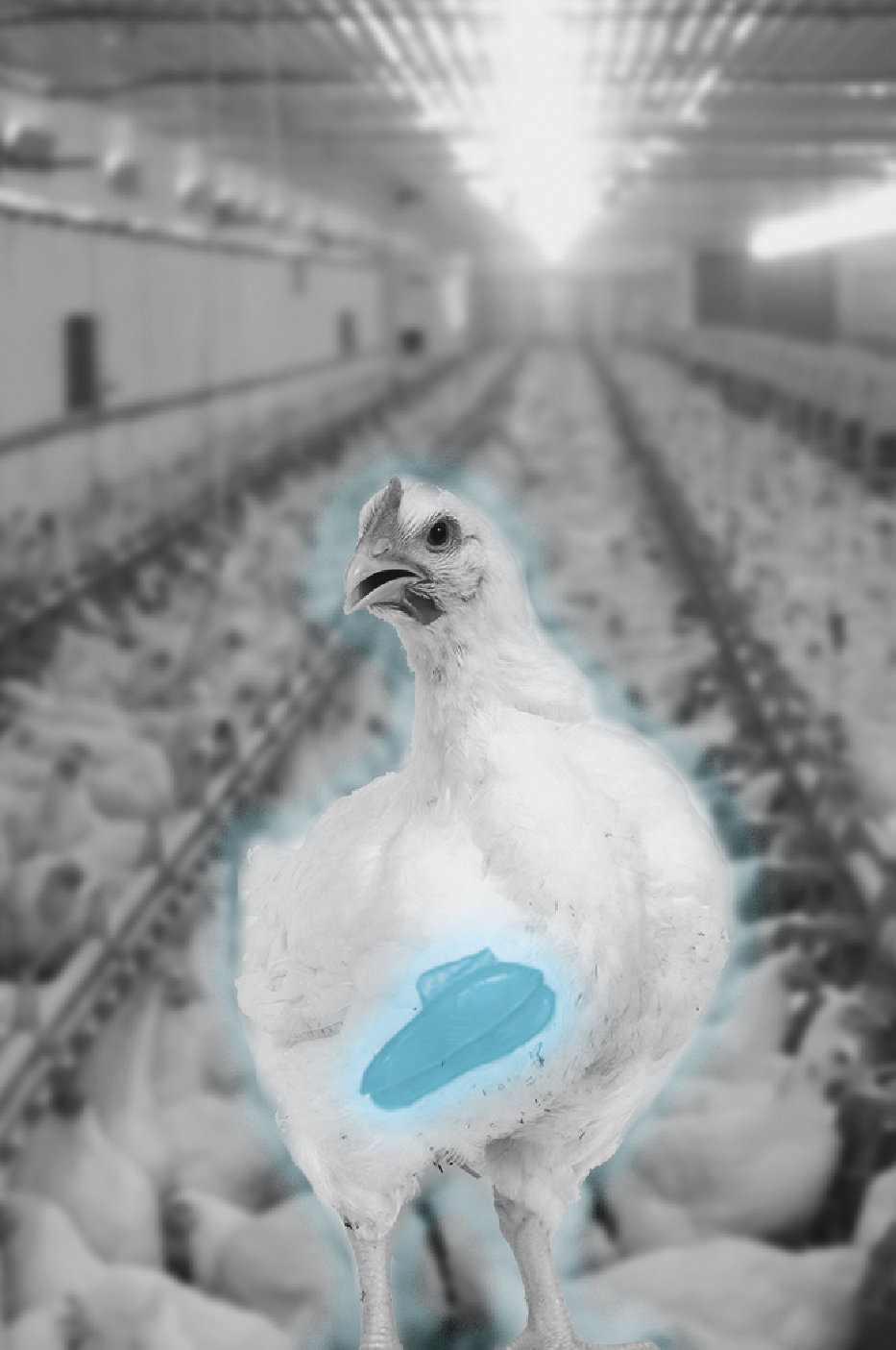


The modern broiler farming industry farms with high precision and intensity. Animals have been selected and bred to be able to perform according to the required production intensity. To achieve that, animal feed has also been concentrated in terms of energy and nutrients to allow animals to perform at the required production intensity.
In an intense production environment, it is inevitable that broilers will face stress, mycotoxins accumulation, and over-nutrition during the feeding process.

Since the worldwide restriction of in feed antibiotics and growth promoters, many producers have turned to additives and remedies to promote gut health. A healthy animal requires healthy input and healthy output to maintain life and growth. Much attention has been given to improve a healthy input system – namely improving gut health for improved nutrients absorption, but not so much on a healthy output – the animals waste excretory system. Without a healthy output, the body system is like a ticking time bomb, a disaster waiting to happen.
Why protect the liver?
The liver among many organs play an important role in regulating most chemical levels in the blood and excretes a product called bile. This helps carry away waste products from the liver. All the blood leaving the stomach and intestines passes through the liver. At the liver, the blood is broken down, balanced and nutrients are metabolized into forms that are easier to be used by the rest of the body or becomes nontoxic. There are over 500 vital functions that have been identified with the liver including the following:
When the liver has broken down harmful substances, its by-products are excreted into the bile or blood. Bile by-products enters the intestine and leave the body in the form of faeces and blood by-products are filtered in the kidneys and leave the body in the form of urine.

Protecting the liver and improving fat digestion
Bile acid is well known for its involvement in fat digestion and absorption along with fat-soluble vitamins in the small intestines. The secretion of bile is limiting is younger animals especially during the first week of life, resulting in low-fat digestion. This goes on to contribute to malabsorption of fat and a restriction in energy intake, negatively impacting growth. A supplementation of exogeneous bile acid could alleviate this issue in younger animals and stimulate the secretion of bile acids in older animals and activate lipase to improve fat digestion and absorption.
Bile acid supplementation could also help with liver detoxification as bile returning to the liver could help to combine and decompose toxins, such as mycotoxins, endotoxins which do great harm to the liver and intestines. Bile acid was also found to be able to decrease lipogenesis and promotes the compound of very low-density lipoproteins (VLDL) in the liver thus preventing fatty liver syndrome and keeping a healthy working liver.
Bile acids and gut microbiota
Bile acids not only protects the liver and facilitates fat digestion but also plays a role in regulating gut microbiota. The relationship between the gut microbiota and bile acids is bidirectional. Studies have found that bile acid can inhibit gram-positive bacteria such as staphylococcus aureus, as well as gram-negative bacteria such as E. coli. Bile acid also a particularly important for the intestinal barrier, as it can prevent harmful bacteria from invading subcutaneous tissue, it has significant bacteriostatic effect, and prevent the bacteria from transferring to other organs.
Bile acids and broiler growth and performance
With the benefits of bile acid shown above, it is evident that supplementing bile acid would be beneficial to animals’ performance as it regulates a healthy input and output system of the body. Research data have confirmed that the supplementation of bile acids to broilers can improve growth performance, carcass quality, lipid digestion and liver health. Bile acid supplementation was also found to improve body weight at harvest with an improved average daily gain during the later stages of growth.
Serum ALT and AST activity are traditional biochemical indices for liver function and are used clinically for diagnosis of liver injury. When birds were supplemented with bile acid at a higher concentration of 400mg/kg in feed, it did not cause hepatotoxicity. Birds that were supplemented with bile acids also had lower serum GLU levels indication that bile acid supplementation promoted glucose metabolism. Bile acids stimulated glucose uptake, which is commonly used as an energy source and a metabolic intermediate in the animal’s body. Bile acid as signaling molecules has emerged in recent years showing that bile acids are not only involved in the hepatic regulation of cholesterol metabolism but also of glucose.
At Manuka Biotech, we carry a novel bile acid product that is homogeneously emulsified with ultra-high purity bile acid sourced from New Zealand sheep and cattle – Lipotech BA. Lipotech BA has excellent flowability thus enabling easy mixing and can help improve fat digestion and protect your animals’ liver leading to healthy animal with a healthy input system and a healthy output system to optimize life and growth.
Contact us for more information regarding Lipotech BA.
By Kayla Wong, Technical Specialist, Manuka Biotech

Whether you have a question about features, trials, how to order, want to be our partner, or anything else, our team is ready to answer them all.